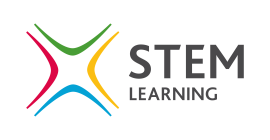- View more resources from this publisher
 STEM Learning
STEM Learning
Real life maths - Karen Dawe
Dr Karen Dawe is a STEM Ambassador and Research Associate for ALSPAC (Avon Longitudinal Study of Parents and Children aka 'children of the 90's'). She is in charge of data quality for the ‘Focus on Mothers’ clinic which is gathering data on the mums of the ‘children of the 90s’. She writes monthly reports on quality and accuracy of data and advises fieldworkers (the nurses that work with the mums) on how to improve and maintain data quality. She is also part of a team of ‘data buddies’ who create data files for research collaborators around the world and advises them on how to get the best from their data.
This challenge explores longitudinal studies, often used in medical research, and asks students teams to play the role of data analysts. Students will calculate the mean, mode, median and range for a small set of continuous data and interpret measures of central tendency and the consistency of data in context.
KS3 maths curriculum links:
• Describe and compare univariate empirical distributions through: appropriate graphical representation involving discrete, continuous and grouped data; and appropriate measures of central tendency and spread.
Other subject links:
Science – working scientifically.
Show health and safety information
Please be aware that resources have been published on the website in the form that they were originally supplied. This means that procedures reflect general practice and standards applicable at the time resources were produced and cannot be assumed to be acceptable today. Website users are fully responsible for ensuring that any activity, including practical work, which they carry out is in accordance with current regulations related to health and safety and that an appropriate risk assessment has been carried out.
Downloads
-
STEM Ambassador case study Karen Dawe 585.45 KB
-
Student challenges Karen Dawe 771.28 KB




